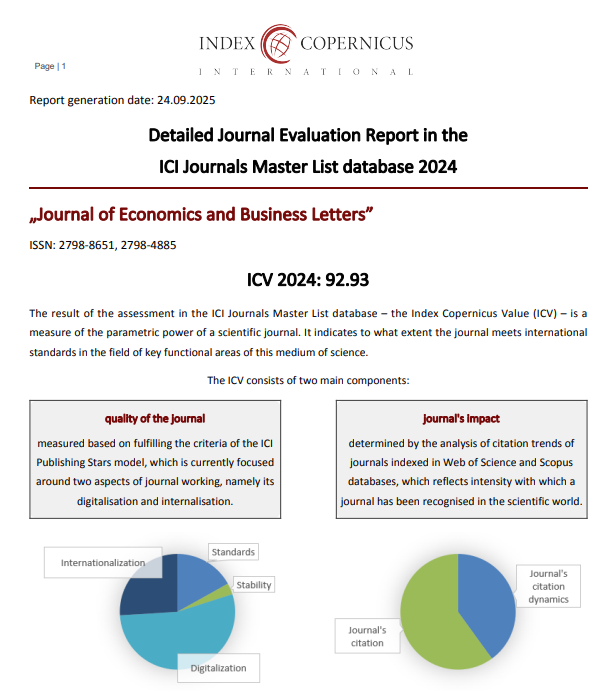Teacher competence, school management, and organizational culture as joint drivers of teacher productivity: Evidence from SMA Negeri 66 Jakarta
DOI:
https://doi.org/10.55942/jebl.v5i4.855Keywords:
teacher competence, school management, organizational culture, teacher productivity, SMA Negeri 66 JakartaAbstract
This study investigates whether teacher competence, school management, and organizational culture jointly and separately shape teacher productivity in a public urban high school context. Using a census of 63 teachers at SMA Negeri 66 Jakarta, we administered multi-item Likert instruments aligned with national education standards and management/culture frameworks. Psychometric screening yielded high internal consistency across scales (α ≈ 0.88–0.96), and classical OLS assumptions (normality, homoskedasticity, linearity, absence of harmful multicollinearity) were satisfied. Bivariate analyses showed that competence had the strongest zero-order association with productivity (r ≈ 0.92; R² ≈ 81%), followed by organizational culture (r ≈ 0.61; R² ≈ 37%) and school management (r ≈ 0.44; R² ≈ 19%). In the simultaneous model, all predictors remained positive and significant, with combined explanatory power around 38–39% (p < .001). Notably, organizational culture exhibited the largest marginal coefficient when controlling for the other variables, indicating that a collaborative, disciplined, and trust-rich culture amplifies the translation of individual competencies into observable performance. Managerially, the results imply that targeted improvements in budgeting transparency and cycle discipline, structured peer learning (e.g., lesson study, peer observation), and timely, specific recognition can elevate productivity beyond its already favorable baseline. The findings support a triadic productivity model in which capability (competence), systems (management), and norms (culture) operate as complementary levers of performance.
References
Amich, Alhumami. Pendidikan dan Pembangunan Ekonomi. Diakses dari situs http://www.kompas.com/kompas-cetak/05/05/03/opini/1724873.html
Hanushek, E. A. (2011). The economic value of higher teacher quality. Economics of Education Review, 30(3), 466–479. https://doi.org/10.1016/j.econedurev.2010.12.00
Hartnell, C. A., Ou, A. Y., & Kinicki, A. (2011). Organizational culture and organizational effectiveness: A meta-analytic investigation of the competing values framework’s theoretical suppositions. Journal of Applied Psychology, 96(4), 677–694. https://doi.org/10.1037/a0021987
Keputusan Menteri Pendayagunaan Aparatur Negara No.25/Kep/M.PAN/04/2002 tgl 25 April 2002.
Mulyasa, E. 2006. (2006). Menjadi Guru Profesional. Remaja Rosdakarya. Bandung
Naisbit, John dan Aburdence, Patracia. (1999) dalam Megatrend (2000). terj. FX Budijanto, Binarupa Aksara, Jakarta.
Peraturan Pemerintah No.38 tahun 1992 Pasal 3 Ayat 3
Schein, Edgar H. (2004), Organizational Culture and Leadership, Third Edition, Jossey –Bass Publishers, San Francisco.
Tilaar, H.A.R. (2005). Manifesto Pendidikan Nasional : Tinjauan dari Perspektif Postmodernisme dan Studi Kultural. Penerbit Buku Kompas. Jakarta
Tschannen-Moran, M., & Woolfolk Hoy, A. (2001). Teacher efficacy: Capturing an elusive construct. Teaching and Teacher Education, 17(7), 783–805. https://doi.org/10.1016/S0742-051X(01)00036-1
Ki Supriyoko. (2007), 9 Juli . ”Revitalisasi Pendidikan Nasional”, Kompas, p.6
Downloads
Published
How to Cite
Issue
Section
License
Copyright (c) 2025 Didi Wahyudi

This work is licensed under a Creative Commons Attribution 4.0 International License.
















